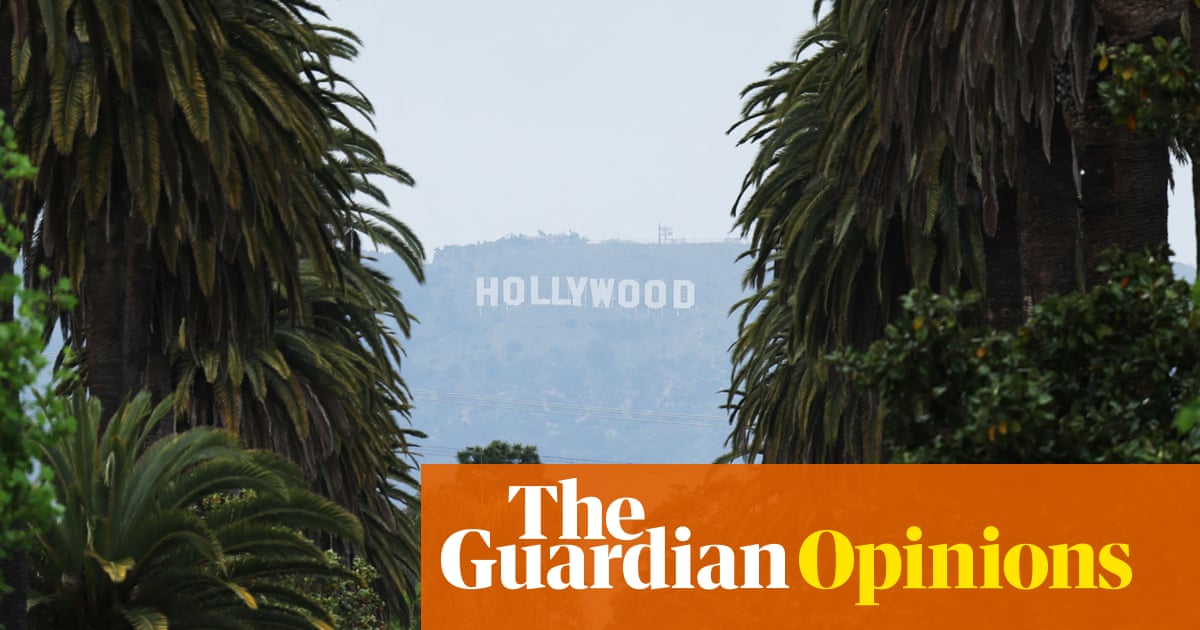Another day, another bizarre, mischievous, headline-hogging pronouncement from the US president.
Steve Bannon famously advised him to flood the zone with shit – a Maga-Maoist permanent revolution of provocative, toxic nonsense. Trump is flooding the zone with tariffs, then he pauses, walks back and climbs down on tariffs, and then adds more tariffs. The latest is his bizarre plan to hit movies made in “foreign countries” with 100% tariffs. He has solemnly announced his grave concern that Hollywood was “dying” at the hands of foreigners like the UK, who give tax breaks to multinationals.
Huh? At the beginning of this second tenure, Trump unveiled his three “Hollywood ambassadors”, his like-minded guys of the silver screen: Mel Gibson, Sly Stallone and Jon Voight – and Mr Voight, it now appears, met with the president the day before his announcement, suggesting plans for restoring US film production, plans in which ideas for limited tariffs in certain circumstances featured briefly.
Could it be that the president’s ears pricked up at the word “tariffs”, but that he had only a hazy grasp of whatever else the star of Midnight Cowboy was saying?
At all events, Mr Voight may now need all his ambassadorial tact to impress upon the president that what has imperilled US cinema admissions is the streaming industry, in turn boosted by the calamitous pandemic, and also arguably the writers’ strike and the growing reality of AI. Not really foreign tax breaks. And what on earth is this “tariff” to be imposed on? How is it going to work? The British Film Commission chief executive Adrian Wootton has described Trump’s new tariff idea as “clearly concerning”: but with very British understatement wondered about the details.
Because films in 2025 are not physical objects like bacon or Scotch whisky – in fact it really doesn’t make sense to think of “cinema” as “goods”. The film industry is a complex, globalised service industry. Do you whack your 100% tariff on cinema tickets? (If so, asmy colleague Andrew Pulverpoints out, films will simply switch over to streaming en masse and Trump will have achieved the further destruction of the US movie industry.) Do you put your tariffs on Netflix or Amazon or Apple subscriptions in proportion to the multinational origin of the streaming content? How on earth is that going to be meaningfully assessed? Perhaps with a preposterous high-school maths equation of the sort the White House unveiled the last time. In fact, the movie tariff is only slightly less baffling than the one imposed on thepenguins of the Heard and McDonald Islandsin the Antarctic. But this one is more insidious, because it sounds as if someone might actually try putting it into practice.
Because the whole political point of this latest trolling move is that no one knows how it will be imposed, certainly not the president. The point – as must now be very clear – is not to help the American film industry, for which the president has no regard whatever. It is to prank the liberal media and the bleeding-hearts and centrist do-gooders. There will be a pause while everyone tries to work out what it all means, and perhaps it will mean some kind of imposition on streamer subscriptions or tickets, that is, a price-hike for the American consumer, like all tariffs. Or maybe Trump will “pause” it, or change it or forget about it as he moves on to something else with which to flood the zone, such a releasing pictures of himself dressed as the pope. But in the meantime, there will be catastrophic confusion and unease, production plans will be stalled and stymied while studios work out what new costs they must now factor in.
Will these tariffs actually happen? Even if not, then long after Trump has lost interest and moved on to something else, the mere threat will have damaged the industry they are supposed to have helped.
